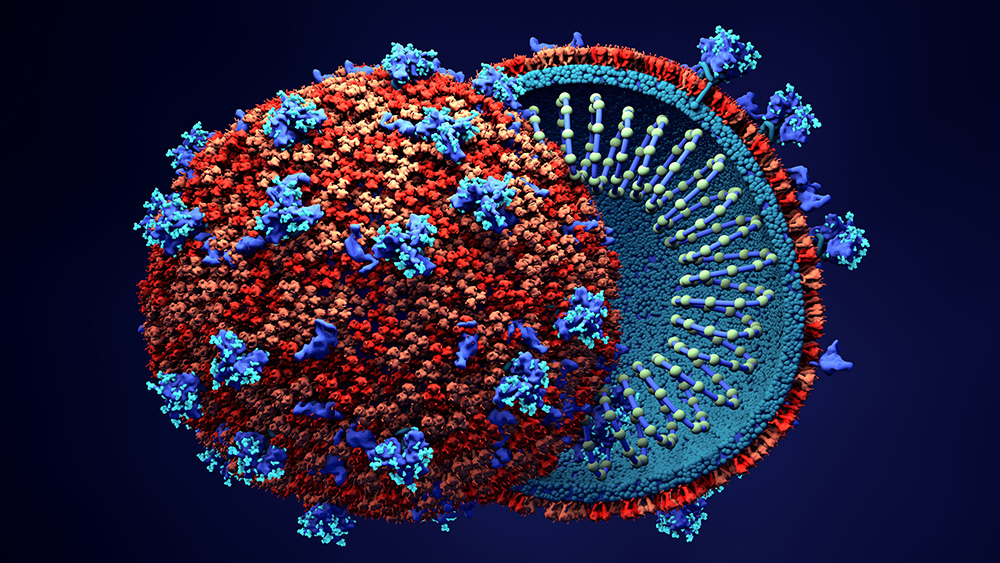Consumption of fluoridated water found to have adverse effects on kidney and liver health in children
09/18/2020 / By Virgilio Marin

Repeated exposure to low levels of fluoride may be toxic to the kidneys and liver of children, found a study published in the journal Environment International.
Researchers from the Icahn School of Medicine at Mt. Sinai examined how fluoride levels in water and blood may relate to renal and liver health. They found that small levels of fluoride ingested throughout time could cause adverse changes in the two major organs.
This finding has great implications for policy making. The majority of the United States water system has fluoride in them as the result of a shift in public policy in the 1950s.
“This study’s findings suggest that there may be potential kidney and liver health concerns to consider when evaluating fluoride use and appropriate levels in public health interventions,” said first author Ashley Malin.
Fluoridated water bad for kidney and liver among children
Since its introduction to the public, fluoridated water accounts for more than 70 percent of the U.S. public water system. That’s more than 270 million Americans with access to fluoridated water systems.
Water fluoridation was envisioned to improve the lives of Americans by reducing dental caries. But a growing body of research is shedding light on its ugly side. Many studies suggested that fluoridated water can be damaging to the brain, kidneys and liver. Some research also cast doubt upon the efficacy of water fluoridation on oral health.
In the present study, the researchers examined the link between chronic low-level exposure to fluoride and liver and renal health among children. They relied on data from the National Health and Nutrition Examination Surveys, a group of studies that assessed health and nutritional well-being in the United States. They looked at the fluoride levels of almost 2,000 adolescents and the fluoride content of tap water in the homes of about 1,750 adolescents.
The team found that drinking fluoridated water is linked to adverse changes in liver and kidney function. This finding is significant as children flush out only 45 percent of fluoride in the kidneys. Adults, on the other hand, flush out 60 percent. This means that children are at greater risk of developing kidney damage and chronic kidney disease. Furthermore, children with compromised livers and kidneys are at greater risk of a renal or a liver problem compared to healthy children.
The researchers said that the potential side effects of chronic drinking of fluoridated water include renal and liver damage, thyroid dysfunction, bone and teeth diseases and impaired protein metabolism.
Low IQ caused by fluoride
In another study published in the journal Jama Pediatrics, researchers also found adverse effects of fluoridated water on children’s health. They uncovered a link between low-level exposure to fluoride and lower intelligence quotient, or IQ.
The team examined data from Canada’s Maternal-Infant Research on Environmental Chemicals program, a long-term study of pregnant women and their children in six Canadian cities. Canada is one of the nations worldwide that fluoridate their water; about 38 percent of the country’s tap water is fluoridated.
Women living in cities with fluoridated drinking water had an average urinary fluoride level of 0.69 milligrams per liter (mg/L). In comparison, women living in cities without fluoridated water had 0.4 mg/L. Three to four years after the women gave birth, their children were given an age-appropriate IQ test.
Results showed that when a pregnant woman’s urinary fluoride levels rose by one mg/L, the IQ score of a male offspring dropped by about 4.5 points. The finding is unique to sons, the researchers said. But they’re uncertain why. They suspected that it might be due to differences in how boys and girls absorb environmental toxins in the womb. (Related: The uncensored truth about fluoride.)
The researchers are optimistic that their findings will attract further research into fluoridated water. Future efforts will be important in informing policymakers, as public policy is typically informed not by one study alone. Instead, it is shaped by the best available evidence as a whole.
Learn more about the adverse effects of fluoride on health at Fluoride.news.
Sources include:
Tagged Under: Chemical exposure, children's health, clean water, cognitive health, drinking water, Fluoride, intelligence quotient, kidney damage, kidney health, liver damage, parenting, pregnancy, Public Health, toxin, toxins, unsafe water, water health




















